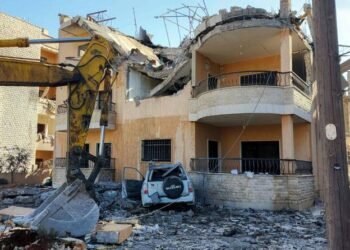The United Arab Emirates has reaffirmed its commitment to advancing the global energy transition and strengthening international cooperation to ensure energy security, underscoring its position as a reliable strategic partner in this vital sector.
The pledge came during the participation of the UAE Ministry of Energy and Infrastructure in the Second Meeting of BRICS Committee of Senior Energy Officials, held in Brasilia, with the presence of high-level representatives from member states.
The meeting focused on achieving a balance between energy security and sustainable development, while promoting a shift towards a low-carbon future.
Participants highlighted the UAE’s pioneering role in ensuring global energy supply security and its leading position in energy transition, hydrogen, and its derivatives.
The UAE Ministry of Energy and Infrastructure presented the country’s accomplishments in the energy sector, including global leadership in universal access to electricity and clean cooking fuels, investments in renewable and clean energy projects, and improved energy efficiency. These achievements reflect the UAE’s dedication to fulfilling the United Nations Sustainable Development Goal 7.
The meeting also stressed the importance of implementing the outcomes of the historic “UAE Consensus” reached at COP28, which aims to triple global renewable energy capacity and double energy efficiency by 2030 – objectives that align with the BRICS vision for a sustainable, clean-energy future.
In February, the UAE has participated in the first BRICS Sherpa meeting of 2025, which took place in the Brazilian capital, Brasilia, following Brazil’s assumption of the group’s presidency for this year.
The UAE delegation was headed by Khamis Al shemaili, Secretary-General of the Council for Diplomatic and Consular Affairs at the Ministry of Foreign Affairs and Assistant Sherpa of the UAE to the BRICS group.
The meeting focused on discussing the priorities set out by the Brazilian presidency, including expanding cooperation in the fields of health, financing efforts to combat climate change, and enhancing trade and investment.
On the sidelines of the meeting, the UAE delegation held a series of bilateral meetings with representatives from Egypt, Russia, Brazil, Ethiopia, with discussions focused on strengthening bilateral cooperation and files of mutual interest.
The UAE’s participation in BRICS meetings underscores its steadfast belief that coordinated joint global action and multilateral cooperation are more important than ever to address global challenges, according to principles aiming to reinforce peace, stability, and global prosperity.
The UAE is harnessing its BRICS membership to accelerate global economic growth, boost cross-border trade, and drive infrastructure development worldwide, panelists said during a panel discussion at the World Governments Summit (WGS), held in February in Dubai.
Sultan Ahmed bin Sulayem, Chairman and CEO of DP World, and Mohamed Saif Al Suwaidi, Director General of Abu Dhabi Fund for Development highlighted the UAE’s strategic influence within BRICS.
Serving as a vital logistics hub, the UAE is uniquely positioned to enhance trade connectivity among BRICS nations and beyond, enabling efficient and sustainable movement of goods.
Today, BRICS countries are home to roughly 3.3 billion people — over 40 percent of the global population — and account for an estimated 37.3 percent of global GDP, according to the World Economic Forum (WEF) figures. The bloc is expected to surpass G7 in global trade by 2026.
Bin Sulayem underscored the UAE’s key role, saying, “By leveraging our strategic location and advanced logistics capabilities, the UAE is enhancing supply chain resilience and strengthening trade corridors that will benefit economies worldwide.”
The UAE has cemented its position as a permanent logistics hub for BRICS by developing multimodal trade routes that cut transit times and unlock growth opportunities.
Al Suwaidi emphasised the UAE’s commitment to fostering sustainable economic growth through its BRICS membership, stating, “The UAE’s inclusion in BRICS presents a unique opportunity to strengthen economic ties, not only through government cooperation but also by engaging the private sector. At ADFD, we are focused on financing projects that drive sustainable development, especially in sectors such as transport, energy, and infrastructure. These efforts are closely aligned with the BRICS agenda, contributing to the economic integration and connectivity between the UAE and BRICS member countries.”
He added, “As part of this, ADFD is prioritising large-scale infrastructure projects, including ports, railways, and airports, which are essential for enhancing trade flows and facilitating smoother economic exchanges. On the sustainability front, the UAE has committed US$400 million through ADFD to the Energy Transition Accelerator Financing (ETAF) platform, which is designed to accelerate the clean energy transition in emerging markets. This collaboration aligns with the BRICS focus on sustainable development and reflects our ongoing commitment to global renewable energy initiatives.”








 United Arab Emirates Dirham Exchange Rate
United Arab Emirates Dirham Exchange Rate

